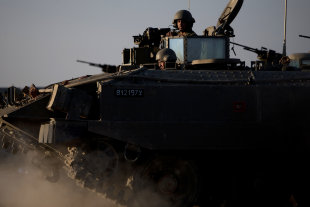KABUL, Afghanistan (AP) — Pakistan has freed eight Taliban prisoners and has agreed to release many more to help kick start a peace process that could lead to a political resolution of the 11-year-old Afghan war, Afghan officials said Thursday.
The decision to release the prisoners, including the former justice minister from when the repressive Taliban ruled Afghanistan, is seen as a signal that neighboring Pakistan might be willing to take concrete steps to revive efforts to lure the group to the negotiating table.
The three Afghan officials, who spoke on condition of anonymity as they are not yet authorized to discuss the results of the sensitive meetings in Islamabad, are familiar with the four-day trip that the Afghan government's peace council made there this week.
The U.S. and its allies fighting in Afghanistan are pushing to strike a peace deal with the Taliban so they can withdraw most of their troops by the end of 2014. But considerable obstacles remain, and it is unclear whether the Taliban even intend to take part in the process, rather than just wait until foreign forces withdraw.
Pakistan is seen as key to the peace process. Islamabad has ties to the Taliban that date back to the 1990s, and many of the group's leaders are believed to be based on Pakistani territory, having fled there following the U.S.-led invasion of Afghanistan in 2001.
The officials said the first group of prisoners was released on Wednesday as a goodwill gesture, and that Pakistani officials had agreed to free anywhere from 15 to 32 more prisoners in the future to help build traction for formal talks with the Taliban.
Two of the officials said former Taliban Justice Minister Nooruddin Turabi was among those released on Wednesday. Turabi, a native of Kandahar who is in his late 40s or early 50s, is missing an eye and has only one leg. He is believed to have played a role in the destruction of two, 1,500-year-old sandstone Buddha statues that once towered some 180 feet high in central Afghanistan. The Taliban, who considered them symbols of paganism, destroyed them in 2001.
A joint statement issued by Pakistan and Afghanistan on Wednesday said "a number of Taliban detainees are being released" to support the peace process at the request of the Afghan government. It also called on the Taliban and other armed opposition groups to participate in peace talks and sever links with al-Qaida. Neither the Pakistani nor Afghan governments have officially confirmed the identities of the prisoners released.
However, one of the officials familiar with the peace process gave The Associated Press a list of the Taliban prisoners — some identified by only one name — that Pakistan agreed to release. The eight prisoners on the list were:
—Turabi.
—Jahangirwal, who was a special assistant for the Taliban's top leader, Mullah Omar.
—Qutub, a Taliban leader.
—Abdul Salaam, the Taliban's former governor of Baghlan province.
—Maulvi Matiullah, who was director of the customs house in Kabul under the Taliban regime;
—Mahamad, the Taliban's former governor of Kunduz province.
—Sayed Saduddin Agha, a former Taliban commander.
—Allah Dad, the Taliban's former deputy minister of communication.
The eight are among 40 Taliban prisoners that the Afghan government has asked Pakistan to release.
Also on the list of 40 is the Taliban's former deputy leader, Mullah Abdul Ghani Baradar, who was captured in Pakistan in 2010.
Baradar is seen by some as crucial to the peace process. Baradar was reportedly conducting talks with the Afghan government that were kept secret from the Pakistanis, and his arrest in the sprawling southern port city of Karachi reportedly angered Afghan President Hamid Karzai.
Pakistan helped the Taliban seize control of Afghanistan in the 1990s — providing funding, weapons and intelligence — and the Afghan government and the U.S. have accused Islamabad of continuing to support the group. Pakistan has denied the allegations, but many analysts believe the country continues to see the militant group as an important ally in Afghanistan to counter archenemy India.
However, Pakistan is also worried about instability in Afghanistan following the planned withdrawal of foreign forces. If civil war breaks out again as it did in the 1990s, hundreds of thousands of Afghan refugees could stream across the border into Pakistan. Violence could also give greater cover to Pakistani militants who are at war with Islamabad.
These concerns have made a peace deal more urgent in the minds of Pakistanis.
___
Associated Press writers Kathy Gannon in Islamabad, Pakistan, and Deb Riechmann in Kabul contributed to this report.











